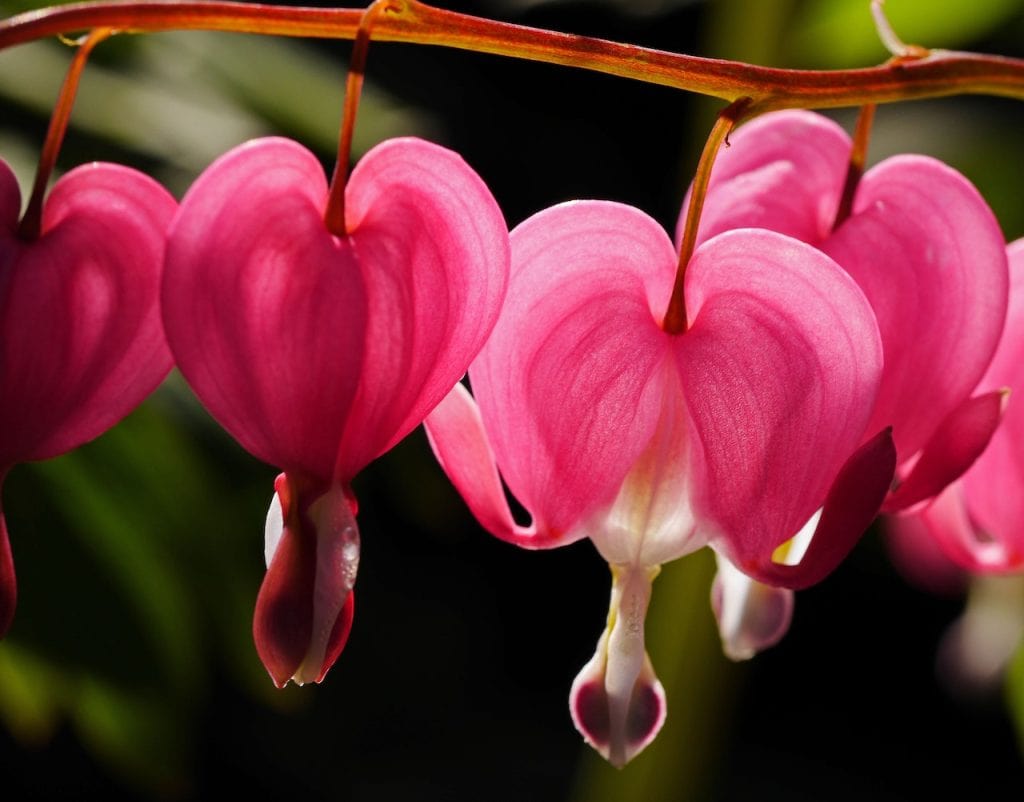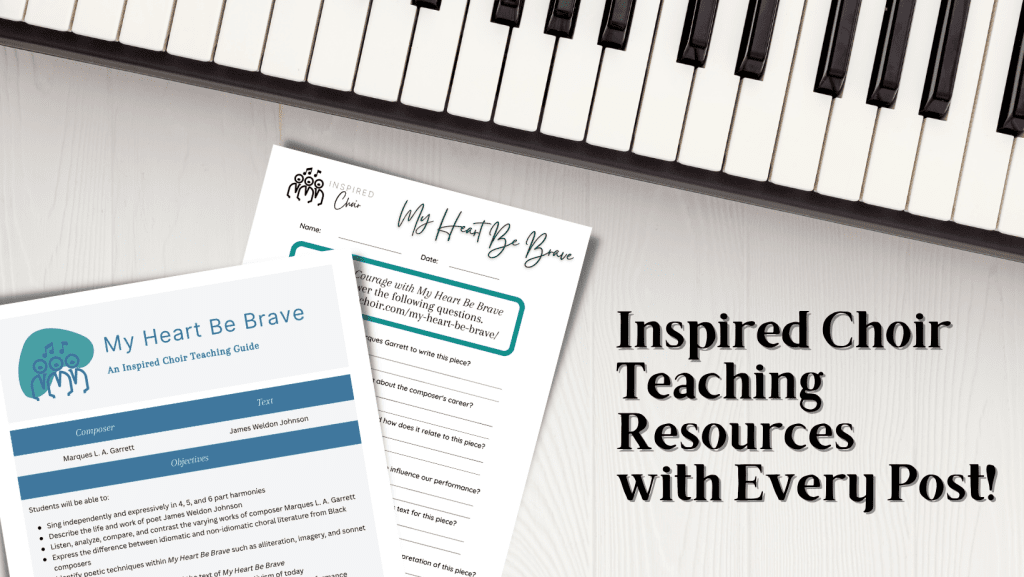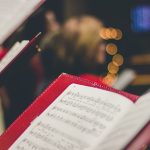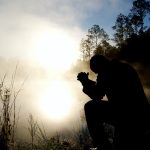Take Courage with My Heart Be Brave by Marques Garrett
My Heart Be Brave by Marques Garrett is a gorgeous and challenging work for SATB or TTBB ensembles. With expansive vocal ranges, divisi, and unaccompanied singing, this piece is not for the faint of heart. Luckily, Garrett masterfully set the poetry by James Weldon Johnson in such a manner that it encourages singers to take courage every step of the learning journey.
Get to know My Heart Be Brave by Marques Garrett a bit better through this post:
- Composer Marques L. A. Garrett
- Poet James Weldon Johnson
- My Heart Be Brave…A Sonnet
- Conversations on Bravery
- My Heart Be Brave Teacher Resources
Take a listen to the piece and read the composer’s introduction on his website here.

Some of the links below are affiliate links. This means that, at zero additional cost to you, I will earn an affiliate commission if you click through the link and finalize a purchase.
There Is Power In Making For the Right
On his website, composer Marques Garrett shared that he wrote My Heart Be Brave to align with Dr. Anthony Trecek-King’s social justice-themed choir concert. Inspired by the first and last lines of the poem – “My heart be brave, and do not falter so” and “There is a power in making for the right” – Garrett created this gorgeous work. “In the midst of discrimination,” Garrett wrote, “our heart–the core of our being–must lead us into rightful change.”
Through their words and actions this year, the singers in our tenor-bass choir have continually asked for more and more challenging pieces. As I looked for choral works with social justice connections for our upcoming concert, I came across My Heart Be Brave by Marques Garrett. This piece poses an excellent challenge for our ensemble, not only musically, but also in addressing the text and context behind the work. Below, I dive into the composer, poet, and poetic techniques behind the work and propose discussions that this piece evokes.
My Heart Be Brave Composer Feature: Marques L. A. Garrett
Marques L.A. Garrett wears many hats: composer, conductor, educator, vocalist, clinician researcher, and author…to name a few. Hailing from Virginia, Dr. Garrett completed his undergraduate degree at Hampton University (VA), his master’s at the University of North Carolina at Greensboro, and his PhD in Music Education at Florida State University.
When he is not teaching and conducting at the University of Nebraska-Lincoln, you can find Dr. Garrett working with the Omaha Symphonic Chorus or the Nebraska Festival Singers, leading conducting workshops and festival choirs throughout the country, and performing with community and university ensembles as a chorister and soloist.
Through his research, Dr. Garrett has further illuminated the work of Black composers. Research interests include Non-idiomatic choral music of Black composers, Negro spirituals, and choral music of R. Nathaniel Dett, José Mauricio Nunes Garcia, and Samueal Coleridge-Taylor. He recently released his Oxford Book of Choral Music By Black Composers, a collection of non-idiomatic compositions from the sixteenth century to the present day.
I strongly encourage you check out his page Beyond Elijah Rock: The Non-Idiomatic Choral Music of Black Composers. This resource includes hundreds of choral works by Black composers outside of the traditional idiomatic canon associated with Black Musicians (like jazz, hip-hop, gospel, or rap). I love that he has included a recommended starting list, as well as links to other resources.
A few other must-listen Marques Garrett pieces include the following:
- Hold On for SATB divisi choir, unaccompanied is a Negro spiritual that challenges singers technically and opens the door for discussion of the symbolism within the text.
- Invitation to Love for SSA choir and piano utilizes a gorgeous text by Paul Laurence Dunbar.
- Five Songs of Laurence Hope is a set of five songs originally composed by Harry T. Burleigh that Marques Garrett has arranged and edited for SATB ensemble, with one piece for SA and one piece for TB. An excellent introduction to Harry T. Burleigh’s art songs.

Poet Feature: James Weldon Johnson
Poet and civil rights activist James Weldon Johnson penned the lyrics of My Heart Be Brave. Born in 1871 in Jacksonville, Florida, Johnson attended Atlanta University, a historically black college, and pursued careers in education, law, civil rights activism, writing, and politics.
Johnson’s brother was a composer and together they moved to New York City in 1901, where they composed music for Broadway. Johnson then worked for President Theodore Roosevelt as consul in Venezuela and Nicaragua.
In the 1920’s, Johnson became a leading voice of the Harlem Renaissance, an African-American cultural movement in New York City that revived music, dance, art, fashion, literature, theater, politics, and scholarship. In addition to writing his poetry and lifting up the voices of other writers and artists, Johnson worked for the NAACP as an executive secretary.
A few other choral works featuring poetry by James Weldon Johnson:
- There are so many arrangements of Johnson’s Lift Every Voice and Sing to listen to! The arrangement linked here is arranged and conducted by Roland M. Carter.
- The Gift to Sing composed by Marianne Forman for SATB or SSAA brings Johnson’s words about singing through adversity to life beautifully
- J. Michael Saunders set Johnson’s I Hear the Stars Still Singing for SATB and piano in an appropriately reflective and somber composition.
Read more about James Weldon Johnson, his pioneering career, his collections of poetry and spirituals, and his worldview here.
My Heart Be Brave…A Sonnet
Although Garrett’s composition is titled My Heart Be Brave, the title of James Weldon Johnson’s poem is actually Sonnet.
To create this poem, Johnson followed the traditional pattern for a Shakespearean sonnet:
- 14 lines in one stanza of text
- Focus on a big idea (bravery over fear)
- ABAB CDCD EFEF GG rhyme scheme
- 10 syllables in each line
- Use of iambic pentameter (unstressed-stressed pattern)
- Shift in tone known as a “turn” or “volta”
- Final couplet resolves the problem posed in the first quatrain
Other poetic techniques that Johnson utilized within the work are alliteration (“fierce the fight”), imagery (raven-winged night), and caesura (first line split by a comma). Read Sonnet here and see if you can identify each of these elements within Johnson’s work!

Conversations on Bravery
Within the text of My Heart Be Brave, James Weldon Johnson spoke to his heart – urging it to be hopeful despite the darkness of the moment. The fight may be difficult, he shared, but the reward of the brightness of tomorrow is powerful. When Sonnet was published in 1893, Johnson was a 22-year-old college student at Atlanta University where he was an influential speaker on campus. This time was the beginning of his many years of activism.
SEL-INSPIRED CONVERSATIONS
Johnson’s life, poetry, and activism open the door to many discussions in the choral setting. When diving into emotionally-driven discussions with singers, I like to frame our conversations with the Social Emotional Learning Competencies. (I talked a bit about SEL here.) Below are a few discussion starters for My Heart Be Brave:
| SEL Competency: | Discussion Prompts: |
|---|---|
| Self-Awareness | What comes to mind when you think about darkness and light in the world? If you were having a conversation with your heart, what would you caution it against and what would you encourage it with? What emotions do you link with moments of darkness and moments of light? |
| Self-Management | When you are stuck in the darkness before the light, how do you manage your feelings of despair? What tools do you have to help your strength and courage persist? Where do you look for inspiring hope? How do you make for the right? |
| Decision Making | As you sing My Heart Be Brave, what musical decisions can you make to share with your audience the turn (volta) in this piece? How can you portray the darkness and the light as an individual? How might we work together as an ensemble to share these changes in feeling? |
| Social Awareness | Are you aware of anyone in your choir (or in your life in general) who might be stuck in the darkness? What signs might they display to indicate that they are struggling with finding hope and looking beyond the darkness? Why might they find the battle too thick for their liking? What issues of social justice might be contributing to their struggle for hope? |
| Relationship Skills | How might you support a friend or colleague who is feeling stuck in the darkness? What actions or conversations might you have to validate their feelings and share hope? |
Teaching Resources
If you want to know more about Social Emotional Learning, I encourage you to check out the books linked below. These are some of my favorites!
Complementary Pieces
Want to listen to other pieces like My Heart Be Brave? Or planning a concert and need some programming ideas? Here are a few complementary pieces!
Thinking about a Songs of Bravery concert theme?
- Written for the CO Children’s Choir, Kevin Padworski’s Be Brave features poetry by Paul Laurence Dunbar.
- Introduce your T(T)B Singers to Handel’s Judas Maccabaeus with this adaptation of Arm, Arm Ye Brave.
- Looking for a larger work? Consider Ola Gjeilo’s Dreamweaver, a seven movement work describing the protagonist’s brave journey through an afterlife.
Other repertoire I’ve programmed with My Heart Be Brave this concert cycle:
- On My Journey Now arranged by Brandon Waddles
- Algo Me Dicen Tus Ojos by Rosephanye Powell (Post Coming March!)
- Say Her Name by Alysia Lee
- Here’s the whole “How Sweet the Sounds” Repertoire Roundup

I’d Love to Hear from You!
Have you sung or conducted My Heart Be Brave with your choir? How did you approach the poetry and the message? What does bravery mean to you and to those with whom you sing? What issues of social justice did you address as you learned the piece? Let me know in the comments below!
My Heart Be Brave Teacher Resources
FREE My Heart Be Brave Reading Comprehension Worksheet
Reading Comprehension Worksheets pull five key points from the blog post above. Additionally, they ask singers to consider musical decisions they can make with the info from this post. Fill in the form below and get a link to a folder including the My Heart Be Brave worksheet and worksheets from all 2023 Spring Repertoire posts.
My Heart Be Brave by Marques Garrett Teaching Guide
Check out the Inspired Choir Shop for the My Heart Be Brave Teaching Guide, which includes the following:
- Learning objectives specific to My Heart Be Brave
- Key Vocabulary and Definitions
- Discussion Prompts
- Three Learning Activities
- Suggested Teaching Sequence
- Additional Teaching Resources

Looking for a My Heart Be Brave Lesson Plan Bundle? Send a request to hello@inspiredchoir.com!




















